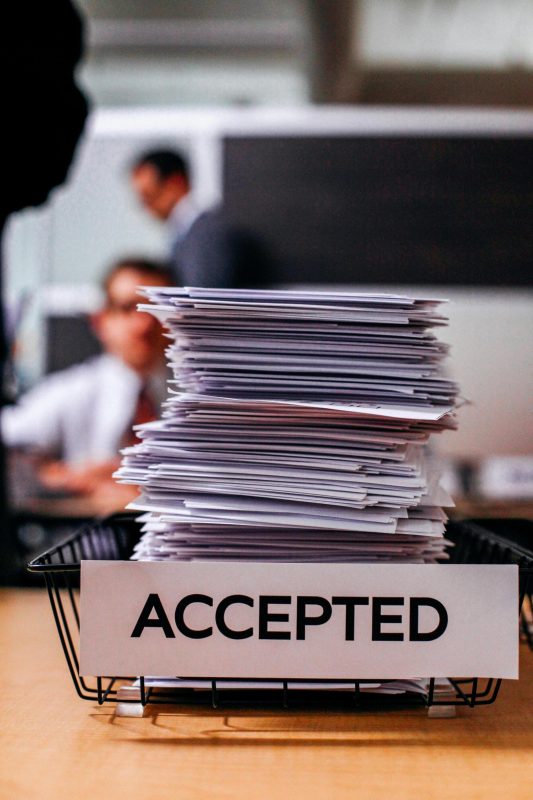Expansion applies e-invoices generated from cash registers
According to the General Department of Taxation, traditional forms of e-invoices used in the past have not met the needs of some direct-to-consumer business activities with regular and continuous operation time, the value of each invoice is not much, but the number of invoices is massive such as in businesses, restaurants, hotels, entertainment services, and supermarkets… As a result, the tax sector has developed solutions and policies for the electronic invoice system’s operation method initiated from the cash register on December 15, 2022.
Applying for an e-invoice is a critical task.
On the afternoon of February 3, the Ministry of Finance organized a conference to deploy electronic invoice solutions (e-invoices) derived from cash registers for some business activities that provide goods and services directly to consumers. Attending the conference was representatives from the Ministry of Public Security, the Ministry of Information and Communications, the Ministry of Justice, and the Ministry of Industry and Trade…Stating at the conference, Mr. Ho Duc Phoc, Minister of Finance, assessed and implemented the tax development strategy with the mission of transitioning to digital finance over the years, and the Ministry of Finance and the General Department of Taxation have implemented the use of information technology applications in tax activities. Especially in 2022, the Finance sector has implemented e-invoices nationwide beginning July 1, 2022; and launched a tax collection portal for cross-border e-commerce exchange.
Until now, 42 foreign corporations have paid taxes; in 2022, they will collect VND 3 trillion; at the same, the industry has ramped up its efforts to combat tax fraud in real estate transfers, transfer pricing, and tax evasion. As a result, the state budget revenue in 2022 exceeded the estimated revenue of VND 400 trillion, with the central budget accounting for VND 195 trillion. This is an unprecedented accomplishment.
Minister Ho Duc Phoc said that following the direction of the Prime Minister to deploy e-invoices created from cash registers, to support and create conditions for businesses and business households, to promote economic development, in the spirit of ensuring fairness, the tax must be paid if it arises.
According to the Minister, a retail item good without an invoice or receipt will affect state budget revenue (state budget). As a result, the Ministry of Finance organized a conference and invited the Ministry of Public Security and the Ministry of Industry and Trade… to attend to discuss implementation strategies. As per Minister Ho Duc Phoc, using e-invoices is a critical task for the finance sector in the digital transformation program. In the future, the Ministry of Finance anticipates receiving the attention, coordination, and direction of the branches and levels, particularly the leaders of provinces and cities, to successfully implement the e-invoice initiated from the computer to prepare the bill.
Three groups of solutions for applying e-invoices generated by cash registers.
Mr. Dang Ngoc Minh, Deputy Director of the General Department of Taxation, reported at the conference that e-invoices will be available nationwide for businesses and business households beginning July 1, 2022. The tax authority had received and processed 2,838 billion e-invoices as of January 31, 2023 (of which 753.46 million e-invoices with code and 2,085 billion e-invoices without code).
In terms of the results of implementing e-invoices generated by cash registers for more than one month from the time of official operation on December 15, 2022, so far, 62/63 tax departments have reported the phase 1 implementation plan (by the end of March 2023), there will be 3,943 business establishments using e-invoices initiated from cash registers, including 1,850 businesses and 2,093 business households. Only the Tax Department of Bac Kan province has not yet established a list of taxpayers who will implement phase 1, owing to difficulties in convincing taxpayers to convert to the form of an e-invoice, as this is not a mandatory regulation tie.
Of the 62 tax departments registered to deploy phase 1, 25 have officially received registration for using e-invoices from cash registers. Of the 3,943-business establishments covered by the phase 1 implementation plan, 805 business establishments have officially registered and agreed to use e-invoices from the cash register on the tax authority’s system. The total number of e-invoices used by 3,943 business premises is 85,387,372 e-invoices, of which 544 e-invoices are from cash registers and have been sent to the tax authority’s system. Although 805 business establishments have registered to use e-invoices from cash registers, they still use other forms of e-invoices, so the output of e-invoices from cash registers is still limited.
The digital transformation that the Finance and Tax sectors have recently implemented, including e-invoices and hence e-invoices created from cash registers, was highly praised by representatives of ministries and branches speaking at the conference. With the assigned tasks by the Prime Minister, ministries and branches will work closely with the Ministry of Finance and the General Department of Taxation to effectively implement this task.
Speaking at the conference, Deputy Minister of Public Security Nguyen Duy Ngoc said that in the past, tax loss had been assessed in stages and had met the results of the fight against tax loss and the requirements of tax duties for the taxpayer’s personal and organization. However, while discussing solutions for e-invoices generated by cash registers remains extremely difficult, sharing and understanding how to discuss is possible because this is a global trend, not just in Vietnam.
To successfully deploy e-invoices generated by cash registers, the Deputy Minister of Public Security said, they must be divided into three groups solutions. The first group arises every day and does it all the time; the second group enters the system data; and the third group must verify and set an implementation roadmap, forming a data warehouse, progressing to manageability, and minimizing revenue tax loss.
The Ministry of Public Security, with assigned functions and tasks, will closely collaborate with the Ministry of Finance to develop a propaganda roadmap, focusing on fighting, preventing, and dealing with violations in a tax loss for the special tax list, particularly the request that the Prime Minister has assigned.
Benefits of e-invoices generated from cash registers.
According to the General Department of Taxation, e-invoices generated from cash registers have advantages such as: Overcoming the situation in which customers cannot immediately issue e-invoices, even after hours or late at night, because invoices are printed out from the cash register connected to transfer data with the tax authority is the e-invoice with the tax authority’s code as prescribed. All at the same, taxpayers are more proactive in correcting errors caused by e-invoices generated from cash registers and sent at the end of the day rather than having to send each invoice individually as a regular invoice with a code.
So at the point of sale, many cash registers can be set up according to regulations to quickly and conveniently issue e-invoices to customers, and better serve the needs of customers who need invoices to participate in prizes (if taxpayers use e-invoices with a regular code, the invoice will not be issued quickly – there is always a delay to the next day – and the information on the invoice is in a format that only accepts the tax code – no fields information about citizen identification/phone number, if you use an e-invoice without a code, you will not be able to participate in the prize).To successfully deploy e-invoices generated from cash registers, the General Department of Taxation developed and published an e-invoice data component with the tax authority’s code generated from the cash register and an electronic data transfer connection with the tax authorities, methods of transmission and reception with tax authorities as prescribed in Article 12 of Decree No. 123/2020/ND-CP, and to guide taxpayers in connecting and transferring e-invoice data to tax authorities.
Simultaneously, the General Department directs the Tax Departments of the provinces and centrally-run cities to assume primary responsibility for coordinating with relevant units to develop a project to deploy information connection from computers money to manage retail sales of business households and individuals to report to the General Department of Taxation for submission to the Ministry of Finance after reaching an agreement with the People’s Committees of provinces and cities for implementation…
Van Tuan (TBTCO)

 Tiếng Việt
Tiếng Việt








